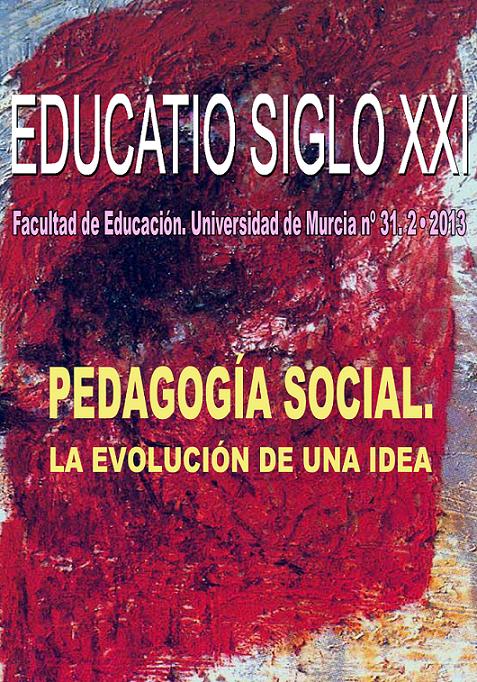Social Pedagogy as a disciplinary comunity between the professionalization and deprofessionalization of the field
Abstract
Social Pedagogy (SP), as many other knowledge fields of professionalizational nature, lies somewhere, on one hand, between its discourses, which claim its right to be the researching core that gives meaning to social education as a profession and to the educational practices linked to it and, on the other hand, focused in the creation of supposed educational spheres (thinking of different human groups usually visualized as needed due to a lack of intervention) linked to the creation of disciplines: a creation in which its legitimation doesn’t cover the emergency of a field that arises from the research of its subject of exploration and, therefore, subsequent specialization (and, therefore, qualified to recreate itself in university training programs of future social educators), but, instead comes as a result of willing denomination of the disciplinary community behind it. Such processes place SP between the professionalization and deprofessionalization of the field, as argued in this collaboration.
Downloads
-
Abstract530
-
PDF (Español (España))375
Original work publishes in this journal is subject to the following terms:
1. Murcia University Press (the publishing house) holds the copyright of the publishes work, and favours and allows their reutilization under the use license stated in point 2.
© Servicio de Publicaciones, Universidad de Murcia, 2015
2. Work is published in the electronic edition under a license (Creative Commons Reconocimiento-NoComercial-SinObraDerivada 4.0 España (legal text). They can be copied, used, disseminated, transmitted and publicly presented, as long as: i) authorship and original publication source is acknowledged (journal, publishing house and URL of the work); ii) are not used for commercial purposes; iii) the existence and specifications of this use license is stated.
3. Conditions for self-archive. Authors are allowed and encouraged to disseminate electronically the pre-pint (before review) and/or post-print (accepted for publication) versions of their work before their publication since that favours earlier circulation and dissemination resulting in an increased chance for the authors to be cited and for the work to reach a bigger share of the academic community. Colour: RoMEO: green.








